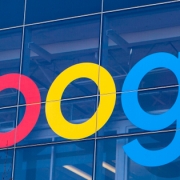The Justice Department announced Tuesday that it was launching an antitrust lawsuit against Google alleging that the search giant’s deals with browser and operating system developers to make Google a default search engine amounted to anticompetitive behavior. The suit bears all the hallmarks of a political stunt—an unnecessary government intervention in the online search market that has little chance of yielding any meaningful benefit to consumers.
Oddly, the suit does not target Google’s dominance in the online advertising space, which has often been the focus of critics, but Internet searches, where it seems least plausible to claim the company enjoys anything like a monopoly. Internet users have a wide variety of easily-accessible options for online searches: While Google is the default search engine for most browsers and mobile operating systems in the United States, users can elect to use competitors such as Yahoo, Bing, and DuckDuckGo with almost no effort, either by manually visiting those pages, or by taking a few seconds to change their default engine settings. Though Google commands the lion’s share of search traffic, it is hard to seriously claim this is because consumers lack for choices—which would normally be a precondition of claiming a company enjoys a “monopoly.”
Just as Google itself rapidly displaced many older search engines like AltaVista and AskJeeves—which had become defaults for users in the 1990s—the company would quickly lose its dominant position if most users found that competitors yielded more relevant results, just as users routinely download and install apps that provide superior functionality to those already installed on their devices. Moreover, Google’s arrangements with operating system and browser developers are not materially different from, or more “anticompetitive” than, analogous deals for prominent product placement in stores familiar from brick-and-mortar markets. Indeed, those arrangements may produce consumer benefits by subsidizing the production of software that is free to the user. Nor is it credible to claim, as DOJ does that Google has established a stranglehold on search defaults by dint of its deep pockets: Its primary rival in competitive bids to be “default search engine” is the not‐exactly‐penurious Microsoft.
Some relevant evidence comes from the European Union, where antitrust regulators recently forced Google to unbundle its search and browser offerings from its Android mobile operating system. Android users are now presented with a menu of search engine choices when setting up a new device, rather than defaulting to Google. The primary result has been that Google began charging mobile manufacturers to license its operating system. Google’s share of the online search market in the EU, however, has not changed measurably at all. While it would be unsurprising if, over time, the new “choice screen” eventually shaved a few percentage points off Google’s share, there is not much evidence for the view that lazy and uninformed consumers are being systematically tricked into using a search engine they would eschew if they were only compelled, rather than merely permitted, to make an active choice.
Perhaps most disturbing, there are indications that this suit may be politically motivated. Attorney General Bill Barr reportedly overrode career antitrust attorneys who did not believe the case was sufficiently strong in order to rush a complaint out the doors. Rep. Jim Jordan (R-OH) responded to the suit by declaring on Twitter that “Big Tech” was “out to get conservatives,” and the Attorney General would not let them “get away with it,” though the suit itself is not explicitly concerned with the company’s supposed political leanings. Eleven state attorneys general have joined the Justice Department suit, all of them Republican.
In short, it is impossible to divorce this action from its political context: Pundits and elected officials on the right, not least among them the current president, routinely bash Silicon Valley by alleging (on the basis of, to put it charitably, highly dubious evidence) that tech companies systematically wage a vendetta against conservatives. Now, weeks before a national election, the attorney general has taken a very public swing at one of the primary villains of this narrative, employing arguments that seem conspicuously at odds with Republicans’ traditionally far more restrained view of antitrust. If this weak suit has been rushed to court in order to punish a company that many on the right perceive as harboring a “liberal bias,” it would constitute not just witless economic policy, but an egregious abuse of power.













